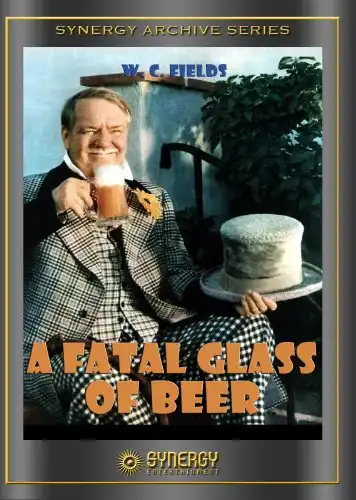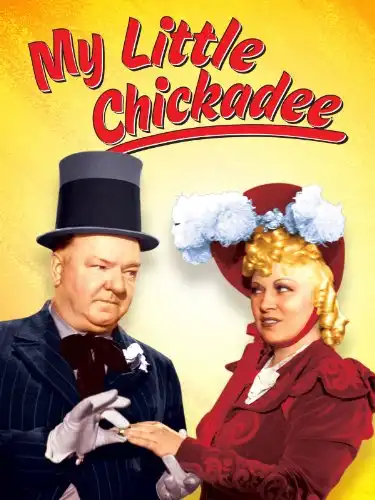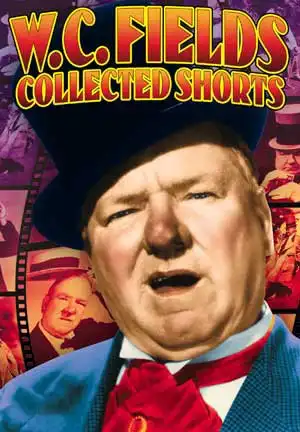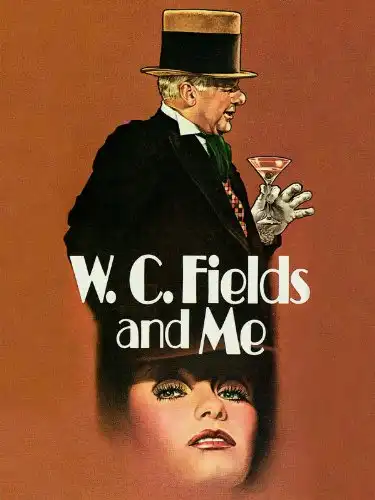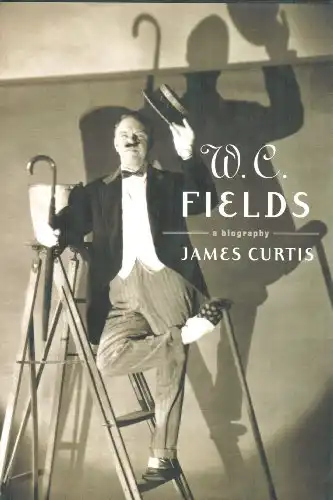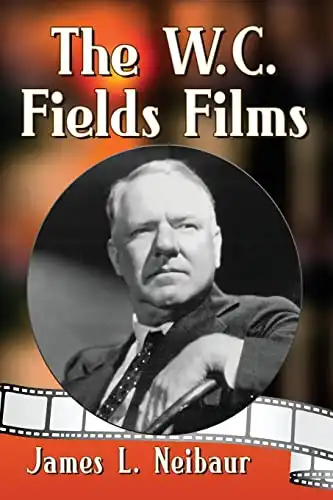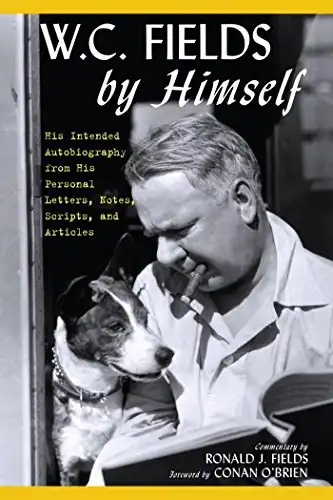I have a nostalgic fondness for one the most famous movie quotations uttered by the great comic actor W.C. Fields: “It ain’t a fit night out for man or beast!”
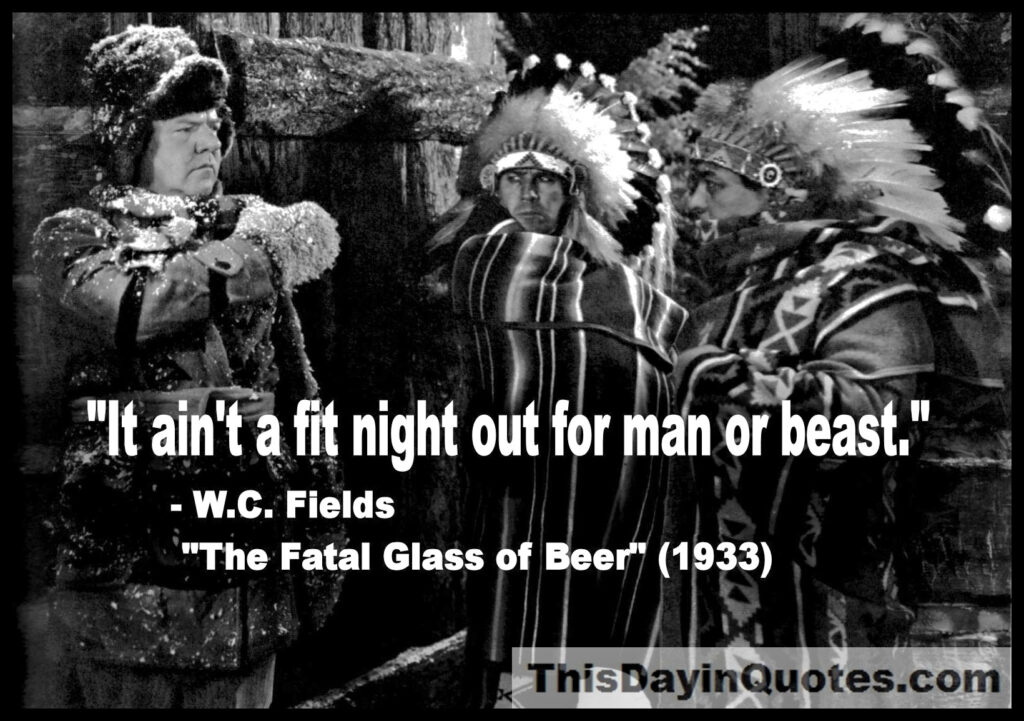
As a kid growing up in Dayton, Ohio in the 1950s, I often heard my father and his old World War II Army buddies say those words to each other on snowy or rainy nights.
Every time they said it, they’d chuckle.
I’d chuckle, too.
But at the time I didn’t actually know where they got the line or why it was funny to them.
It wasn’t until my college days that I saw the W.C. Fields movie that popularized the line — The Fatal Glass of Beer — and realized they were quoting him.
That famous Fields two-reel “short subject” was first released to movie theaters nationwide on March 3, 1933. My Dad and his friends had seen it and other Fields films at local movie theaters in Dayton when they were young.
 It was produced by Mack Sennett, the Canadian-born Hollywood mogul who produced many classic silent and early “talkie” comedies from 1911 until the mid-1930s, including the Keystone Cops films, and films by legendary comedians like Fields, Charlie Chaplin and Fatty Arbuckle.
It was produced by Mack Sennett, the Canadian-born Hollywood mogul who produced many classic silent and early “talkie” comedies from 1911 until the mid-1930s, including the Keystone Cops films, and films by legendary comedians like Fields, Charlie Chaplin and Fatty Arbuckle.
If you’ve seen The Fatal Glass of Beer then you know the line “It ain’t a fit night out for man or beast” is used repeatedly in it for comic effect.
If you haven’t seen the film, you can watch it on YouTube and other sites. It’s a classic!
The movie is set in the Yukon during winter.
W.C. Fields plays a local prospector named Mr. Snavely, who lives in a remote, rustic cabin with his wife.
Six different times in the movie, Fields opens the cabin door, looks out, then intones: “It ain’t a fit night out for man or beast.”
Every time he does, a gust of wind blows a cloud of snow into his face.
The audience can see that it’s obviously a bucketful of fake snow being thrown at Fields from off screen. It’s clearly hokey, as intended.
The Fatal Glass of Beer was, in part, a send-up of earlier, badly-produced films and vaudeville shows.
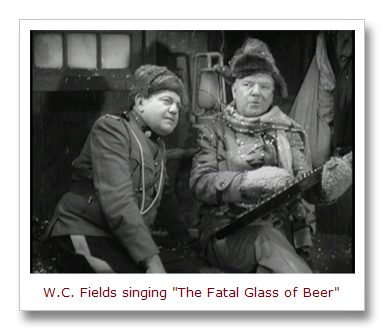 It also mocks the moralistic tone of some early movies and older anti-drinking temperance shows.
It also mocks the moralistic tone of some early movies and older anti-drinking temperance shows.
The title of the film comes from a faux temperance song Fields sings during the first few minutes, at the request of his friend, a local Canadian Mountie played by Richard Cramer.
Fields accompanies himself by seeming to play what the Mountie calls a “dulcimer.” It’s actually a zither and Fields strums it while wearing thick furry mittens and singing off-key.
The song, credited to vaudeville comedian Charlie Case, tells the tale of a young country boy who goes to the big city and visits a bar, where a group of rowdy city boys talk him into drinking “the fatal glass of beer.”
That single drink immediately causes the poor boy to have delirium tremens, go wild and crazy and break a Salvation Army worker’s tambourine.
The moral of the song, as given in the lyrics, is don’t drink alcohol and “Don’t go ‘round breaking people’s tambourines.”
Yes, the song and movie are as kooky as that sounds. It’s almost as surreal as a Monty Python skit. Indeed, I view it as a forerunner of the kind of creatively wacky humor the Pythons are known for.
The Fatal Glass of Beer wasn’t a big hit when it came out. But it eventually became a cult classic, giving my father and millions of other people a funny line to say when the weather is nasty.
By the way, Fields says “man or beast,” not “man nor beast.” The latter is a common misquote.
As I recall, my late father said it correctly. I think he was as much of a W.C. Fields fan as I eventually became.
This one’s for you, Dad.
RELATED POST: “Any man who hates dogs and babies can’t be all bad.”
* * * * * * * * * *
Comments? Corrections? Post them on the Famous Quotations Facebook page.
W.C. Fields – further reading and viewing…


